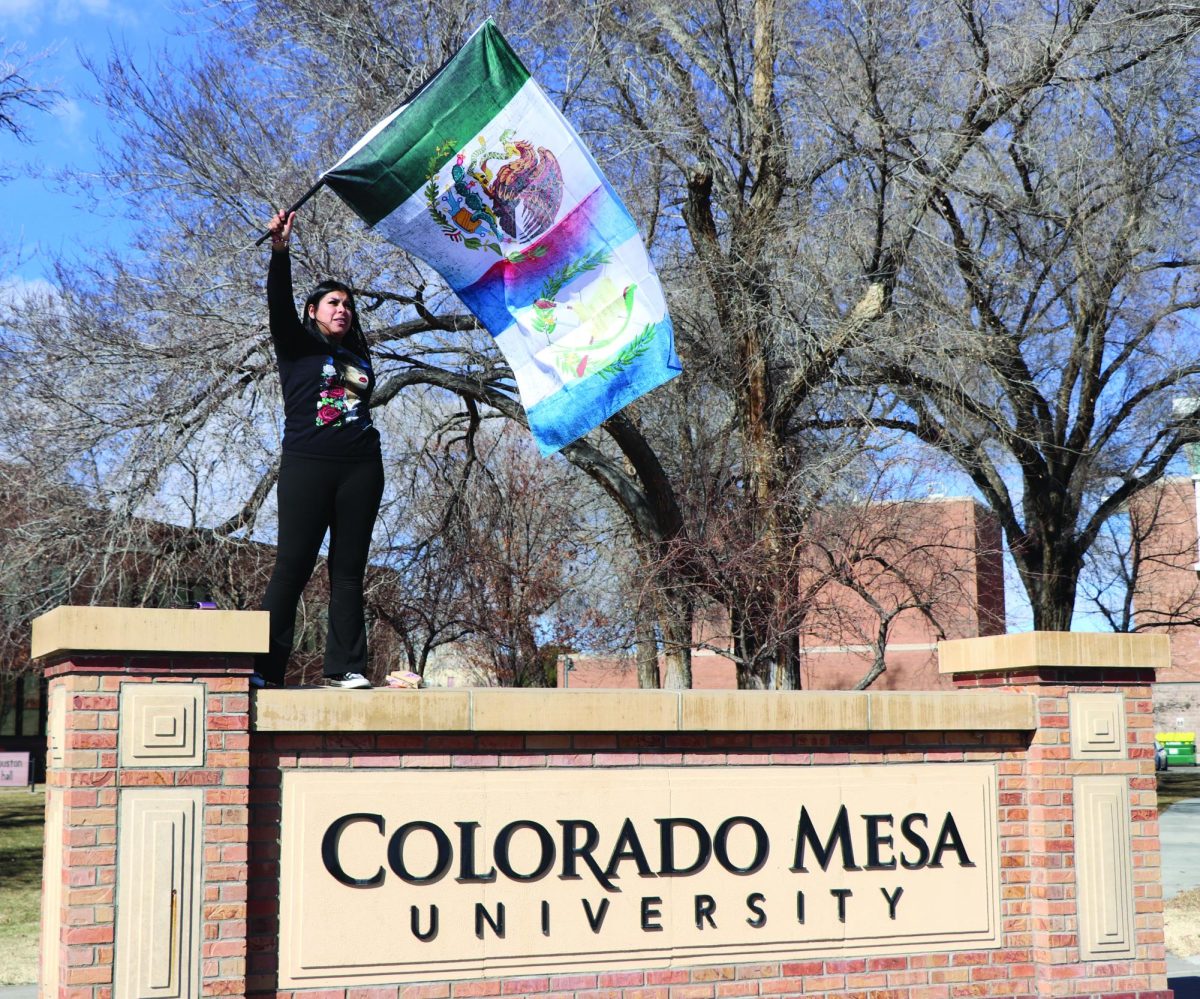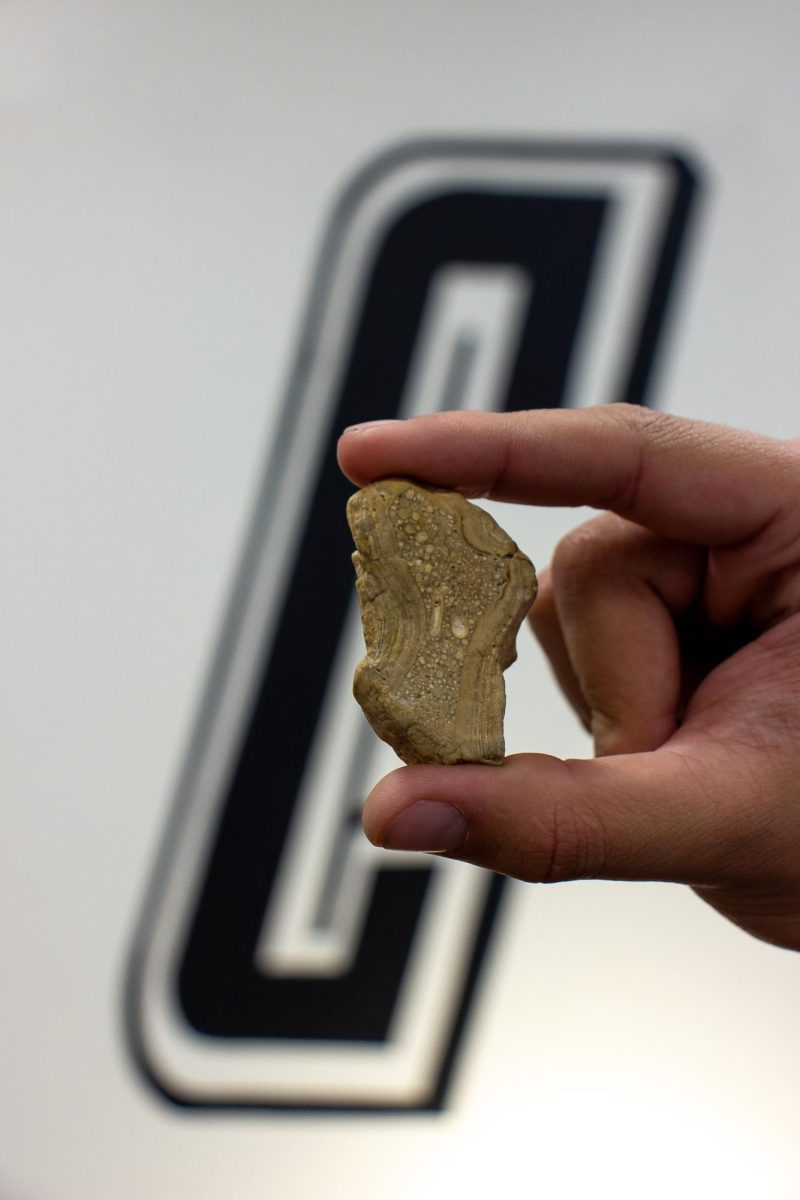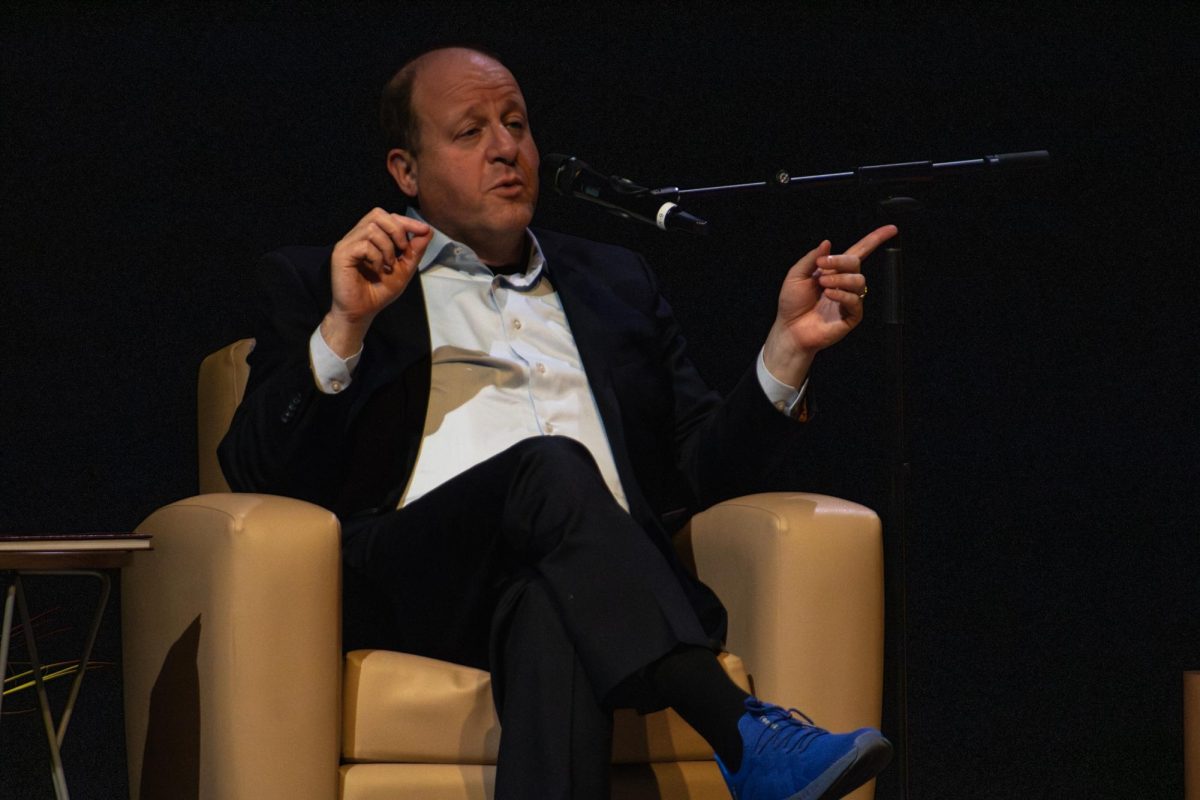Student migrants lacking permanent legal status in the U.S. are faced with precarity as several executive orders centered on illegal immigration rolled out of the Trump Administration This was incensed by stickers appearing around campus that stated:
“A NOTICE TO ALL CITIZENS OF THE UNITED STATES OF AMERICA IT IS YOUR CIVIC DUTY TO REPORT ANY AND ALL ILLEGAL ALIENS TO U.S. IMMIGRATION AND CUSTOMS ENFORCEMENT THEY HAVE BROKEN THE LAW.”
“Guaranteeing the States Protection Against Invasion” and “Protecting the American People Against Invasion” are executive orders signed on President Trump’s inauguration day. Both detail plans that focus on detaining and deporting people in the U.S. that may have entered illegally.
Students currently enrolled at Colorado Mesa University (CMU) are recipients of the Deferred Action for Childhood Arrivals (DACA). DACA is a protected status for people that were brought illegally into the U.S. as minors.
Senior in environmental science Kyla Wells feels that community comes first at CMU and that the school has an obligation to develop a plan for if officials from Immigrations Customs and Enforcement (ICE) were to show up at campus.
“It’s important to be prepared and to educate people about how that could happen and how that would change things,” said Wells.
When asked what responsibility students had in reporting their classmates to ICE, junior land energy management major Noah Strong indicated that it was none of his business and that it’s an individual issue of legality.
“They came here illegally, which broke our laws, which therefore makes them a criminal under that definition,” said Strong. “Just like how every other arrest works…if [ICE] have a legal cause to like, come and get them, and actually have proof to show that they committed this crime then there shouldn’t be any protection for [those students].”
Strong believes that DACA recipients exist in a gray area that is difficult to manage ethically, but the U.S. must enforce the law even if that means some of his classmates are detained and deported.
President John Marshall stated that CMU has been admitting students lacking permanent legal status “for a long, long, time,” and is “ahead of the curve” in serving this specific population in the community.
“I’m not amused by the fact that congress has not addressed the issue,” said Marshall. “We’ve had both parties in charge and nobody will fix it.”
1996 was the last time congress passed expansive migration policy into law. Subsequent policy operated under precedent passed down from Supreme Court rulings, executive order or country-specific reform. Efforts to pass a comprehensive overhaul to the “Illegal Immigration Reform and Immigrant Responsibility Act” (IIRIRA) from 1996 ramped up in 2021. Former President Joe Biden introduced it on his first day in office but it was stalled and ultimately died at the conclusion of the 117th congress.
“We support all of our students that are here. Full stop,” said Marshall, but added that if law enforcement was involved, the student would navigate that privately. Marshall indicated that there is no policy or protocol if ICE were to come to campus. He argued that doing so would implicate CMU as having a political stance on the issue.
Former CMU President Tim Foster wrote an op-ed in the Crite definitively declaring the school’s support for their DACA students back in 2017 during Trump’s first term. In December of 2024, Colorado University (CU) assembled a network of resources called “UnDocuNetwork” and is actively leveraging the CU Law School’s Immigration Clinic for direct support to both students and community members.
Sensitive information held by the school, if accessed by ICE, could provide details that aid in the removal of students that lack permanent legal status. Student information is managed by the Registrar’s Office.
Currently, student privacy is protected under the Family Education Rights and Protection Act (FERPA). CMU Associate Registrar Jennifer Bonner indicated that regardless of citizenship status, all students would be protected equally under this act.
She reported that in the eight years she’s been at CMU, there has not been a single lawsuit regarding FERPA violations but that could be due to a lack of understanding around what qualifies as a violation and how to report it.
“It’s not something we want to have happen and I would say that most violations are tending to be not malicious in nature […] it might be an ill-advised slip,” said Bonner.
FERPA technically extends only to educational records. For those outside of the school, gaining access to FERPA-protected information requires a court order or subpoena. This information is legally distinct from Directory Information.
If a student wants Directory Information, such as their photograph, date and place of birth, home address or telephone number kept completely private, they must formally request it be kept confidential through MavZone.
Although the school’s registrar website explicitly lists what Directory Information includes, many students were unaware exactly what qualified for open disclosure.
Currently, there is no legal requirement to keep Directory Information confidential. However, Bonner attested that the Registrar’s Office exercises discretion when deciding to divulge unprotected information.
“The Directory Information, within reason, we shouldn’t be giving that out freely,” said Bonner. “Within our due diligence [of] figuring out where the information is going, who’s asking, we’re able to release directory information, but [inquiring is] not a ‘have to.’”
There seems to be division between members of campus on how to effectively deal with these changes. With other universities around the state and country implementing policy about ICE on campus, CMU could fall behind the times.









